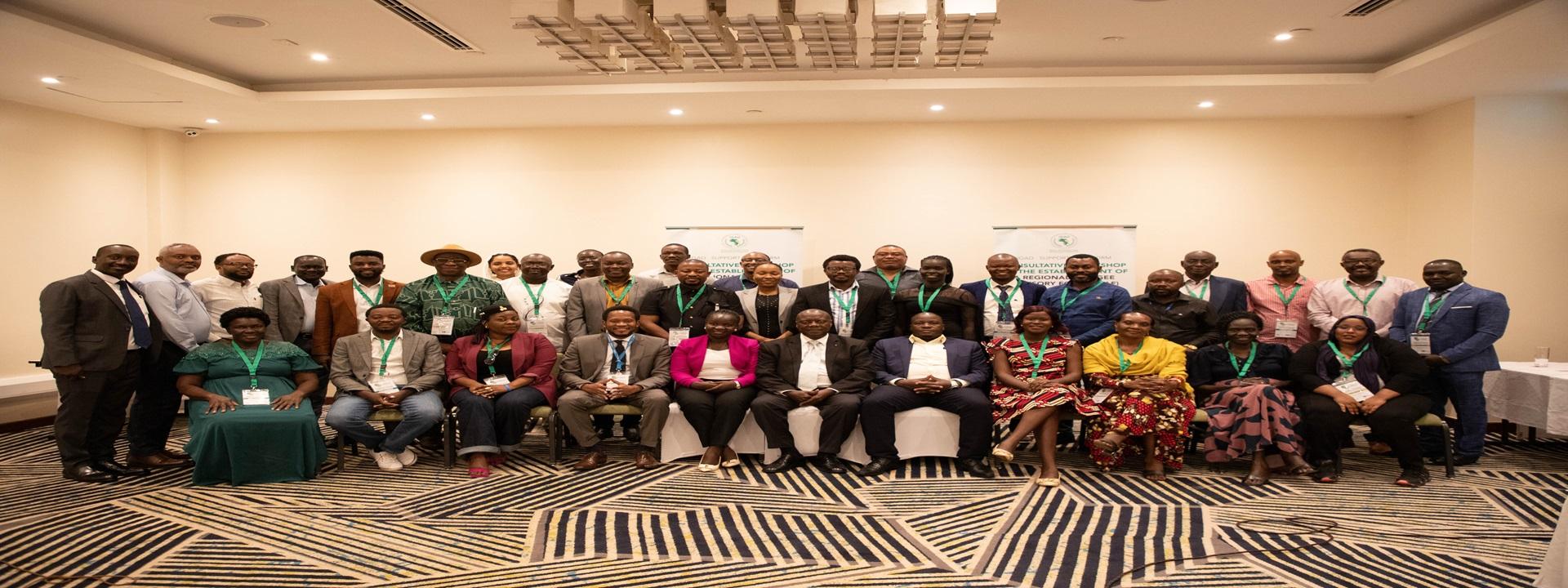(August 14, 2024, Kampala) Representatives of Refugee Led Networks (RELONs), organizations, groups and stakeholders from the IGAD Region have agreed to the establishment of an IGAD regional advocacy platform for refugees, the IGAD Refugee Engagement Forum.
The resolution to form the platform followed a two-day regional consultative workshop from 7th to 8th August, 2024, facilitated by the Intergovernmental Authority on Development (IGAD) through the IGAD Support Platform on Forced Displacement, a mechanism to advocate and offer a comprehensive regional response to forced displacement in the IGAD Region.
Upon its formalization, the platform will ensure that refugees are active contributors to the solutions and involved in decision-making processes at national and regional levels in matters that concern their wellbeing.
The consultation also served as a platform for refugee groups, refugee networks, partners and other stakeholders to share their experiences and expertise in advancing meaningful refugee participation.
Refugees Voices in IGAD Support Platform
In her address to the participants, the IGAD Head of Mission to Uganda, Ms. Joselyn Bigirwa commended the participants for formulating ideas for the inaugural IGAD Refugee Engagement Forum.
She challenged the leaders of refugee groups, networks and other stakeholders to continuously interact with their communities to ensure representation of their voices and issues at such fora.
“Under the IGAD Support Platform, IGAD seeks to establish coherence in policies for rights and protection for the forced displaced communities in the region,” said Ms. Joselyn.
Currently, the IGAD region hosts more than 23 million displaced persons comprising of more than five million refugees and close to 19 million IDPs’.
The IGAD Policy Framework on Refugee Protection, endorsed by Member States in 2023, emphasizes the importance of enhancing meaningful refugee participation in discussions and decision-making processes to ensure accountability and inclusivity, fostering a sense of ownership among refugees and leading to more effective and responsive solutions that directly address their needs and aspirations.
Mr. Charles Obila the Coordinator of the IGAD Support Platform representing the Director of the Health and Social Development, Mme Fathia Alwan, said that addressing the needs and plights of displaced population is a top priority under the IGAD Support Platform.
“The challenges faced by refugees are complex and multifaceted and to address these challenges effectively, we must engage in meaningful dialogue and cooperation, leveraging the unique insights and experiences of those who have lived through displacement” Mr. Obila added.
“Through our deep discussions that are critical in amplifying refuge voices and efforts in promoting durable solutions across the different contexts, we were able to listen to the needs, aspirations, and contributions of refugee communities, and identify strategies to enhance their participation in decision-making processes. Our aim is to build a platform that is inclusive, representative, and responsive to the diverse needs of refugees across our region” said Obila.
He went on to emphasize that the main purpose of the initiative was to create a space where the voices of refugees are not only heard but actively shape the policies and programs that affect their lives thus the meeting being a first step towards fostering greater solidarity, understanding, and collaboration among all stakeholders involved in supporting refugees and displaced persons in our region.
A Refugees’ Advocacy Platform
Mr. John Bosco Sentamu, the Field and Emergency Coordinator/Senior Settlement Commandant, Department of Refugees, Office of the Prime Minister, Government of Uganda said that the protracted nature of refugee response across the IGAD region calls for a paradigm shift in a way Governments handle refugee matters.
“By embracing refugee participation coupled with the implementation of the humanitarian, development and peace (HDP) nexus, the IGAD region can help refugees to live a meaningful life and also create a window for sustainable, safe and diginified return and integration of refugees into their home countries,” noted Mr. Ssentamu.
The participants also discussed the potential structure and functions of the forum, the engagement approach with refugee populations, while also mapped out relevant stakeholders the forum can engage with a sub-national, national and regional levels.
During 2023 Global Refugee Forum (GRF), IGAD committed to establish a Regional Platform /Network for refugees as a step toward the localization of regional commitments for the implementation of the Global Compact for Refugees.
Promoting Grassroot Voices
Participants included diverse refugee groups, representatives of Refugee led organisations and networks from the IGAD region, along with partners such as Regional Durable Solutions Secretariat (ReDSS), UNHCR, OXFAM, Refugee Point and others who are committed to advancing meaningful participation strategies
Commenting on the initiative, Alieu Deng, a South Sudanese Refugee in Uganda welcomed the initiative anticipating increased participation of refugees in shaping policy.
“This is going to be more impactful as it will bring forth the voices of the refugees from the grassroots to a global level,” Ms. Alieu said.
“This platform will be beneficial for the refugee to contribute to the discussions on durable solutions and this will definitely affect how they will be embraced in the member states.”
These sentiments were re-echoed by Benjamin Abala Farouk, a Sudanese Refugee who is hosted in South Sudan. He was enthusiastic at the creation of coherent and formal engagement structures at member state level.
“The IGAD Refugee Engagement Forum helps establish structures that formally bring the voices of the refugees from their communities to the national and regional levels and we explored mechanisms through which this engagement can be fruitful and participatory,” said Mr. Abala.
The engagement forum was organized under the Swedish Government funded project “Towards effective protection and comprehensive solutions for forcibly displaced persons (PSPD) in the IGAD Region.
Ends

